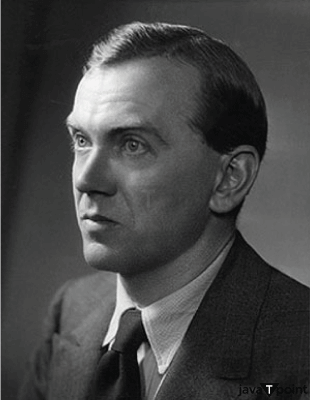The Case for the Defence SummaryThe short story "The Case for the Defence" by Graham Greene is about a case that takes unforeseen turns. It is a short tale from the anthology Twenty-One Stories, which was published in 1939. In the case known as the "Peckham Murder," an elderly lady named Mrs. Parker was killed in the middle of the night by a large, stout man named Mr. Adams. There are multiple witnesses, but Mrs. Salmon is the major one who caught a glimpse of Mr. Adams' face after seeing him on Mrs. Parker's front steps with a hammer hidden. Mrs. Salmon testifies strongly and truthfully during the trial and is certain that Mr. Adams is the bulky man in the dock. She gave an open, considerate, and sincere account of her testimony. As a result, Mrs. Salmon gains a favourable reputation. She is nonetheless startled when the guy's attorney introduces to her a similar-looking man in the rear of the courtroom who is later discovered to be his twin brother. None of the other witnesses can affirm with certainty that the twin Adams being tried for the murder is the same Adams they saw the night of the crime, and both twins have alibis claiming that they were each with their wives at the time. As a result, due to a lack of proof, the twin in custody is freed. The "Peckham Murder" becomes even more mysterious when the twins leave the courtroom due to a weird event that results in one of them being murdered when they are shoved in front of a bus. The narrative is concluded with the author asking, "If you were Mrs. Salmon, could you sleep at night?" About the AuthorHenry Graham Greene was an English author, dramatist, and literary critic who lived from 2 October 1904 to 3 April 1991. His writings investigate the complex moral and political concerns facing today's society. Greene was renowned for his ability to bring together significant literary recognition and broad appeal. 
Despite the author's adamant opposition to being referred to as a Roman Catholic novelist as opposed to a novelist who just so happened to be Catholic, Catholic religious themes are at the core of much of Greene's writing, particularly the four major Catholic novels: Brighton Rock, The Power and the Glory, The Heart of the Matter, and The End of the Affair. The Confidential Agent, The Third Man, The Quiet American, Our Man in Havana, and The Human Factor are just a few books that show a keen interest in how espionage and world politics operate. Greene had a bipolar illness, which had a significant impact on both his personal and professional lives. His attitude was "profoundly antagonistic to ordinary domestic life," he said in a letter to his wife Vivien, adding that "unfortunately, the disease is also one's material." Greene was referred to by William Golding as "the ultimate chronicler of twentieth-century man's consciousness and anxiety." Greene came in second place behind Ivo Andri in 1961, but he was never awarded the Nobel Prize in Literature. Theme of the StoryThe insufficiency of purely human justice is one potential topic of the narrative. Justice has still not been made despite a protracted trial and the murder of one of the twins. In this unfortunate situation, neither a proper legal trial in a court of law nor a vigilante deed has been able to satisfy anybody. This tale illustrates the lengths to which wicked individuals would go in order to achieve their objectives and the helplessness of "civilized" society in the face of such methods. Evil triumphs over good. That is shown in this narrative by the fact that civilized people are unable to intervene in any way regarding the Adams twins. They merely retaliate against the twins by going back to being brutal. The author suggests that even after they accomplish this, the witnesses?who made an effort to behave civilly?will face death at the hands of the surviving twin. Summary of the StoryThemes of perception, identity, unpredictability, independence, and doubt are explored in Graham Greene's novel, "The Case for the Defence." The narrative, taken from his Complete Short Stories collection, is told in the first person by an unidentified narrator (reporter). After reading it, the reader recognizes that Greene could be examining the issue of identity. Adams is accused of murder, but as the novel goes on, it becomes evident to the reader that he has an identical twin brother. Even though Adams has a strong case against her, this is not true when Adams' brother is identified from the courtroom audience. This may be significant since it implies or emphasizes the challenges that might arise while attempting to identify another individual. After seeing Adam's brother in court, Mrs. Salmon can't possibly claim that she spotted him outside her home. In reality, she has the wrong idea of who Adams?the murderer?might be, which might be the argument Greene is making. He could be saying that one can't always be sure of their perceptions. The narrator's presumption that Adams is guilty adds another fascinating element to the tale. It almost seems as if he is willing to trust the witnesses who have testified and who are certain that Adams is the person they saw on the street after Mrs. Parker's death. Adams is never given the benefit of the doubt or an implied plea of innocence by the narrator, and none of the testimony presented by the witnesses is discounted. Since the narrator is a reporter, they should be objective and unlikely to be persuaded by any one viewpoint. Hence this may be significant. This is due to the fact that after allegedly murdering Mrs. Parker, Adams was undoubtedly seen by the witnesses walking down the street. Adams has a strange sibling who is also an identical twin, but it is something that ultimately saves his life. Along with the fact that Mrs. Salmon isn't as certain that Adams is the guy who dropped the hammer in Mrs. Parker's garden after witnessing the twin brother, Adams' identity is in question. Greene, if anything, sows the seeds of doubt in Mrs. Salmon and the witnesses at the trial by including the twin brother in the account. 
The fact that the narrator is shocked by how the trial ended after learning that Adams had a twin sibling might be significant as well. The narrator is no longer as certain as when they originally believed Adams was guilty. He seemed to have been completely unprepared for the occurrences, in the same way, that they have other people in the courtroom. Greene may be highlighting the fact that not everything is as it appears in an effort to emphasize this. The truth is very different, just as the evidence against Adams seemed to be overwhelming. All of the witnesses who saw Adams' twin brother were unable to definitively state that they saw Adams on the night of the murder, saving an innocent man from the death penalty. Greene could even be urging the reader to reconsider their perspective on the situation and to consider whether they can ever be confident of what they may have seen. Nearly enough was done to execute Adams for killing Mrs. Parker based on Mrs. Salmon's conviction that she saw Adams. He wasn't involved in Mrs. Parker's murder, as it turned out. As Adams is murdered by a bus outside the court, the ending of the narrative is equally intriguing. However, other readers would argue that this death was just an accident. Maybe the narrator thinks that there is some heavenly wrath going on. Something that would underline even more is the narrator's persistence in his conviction of Adams' guilt in spite of the court's decision to clear him. Adams' brother starting to gaze in Mrs. Salmon's way after Adams is slain might possibly be significant. It is tough to speculate on his motivations. However, if the reader follows the narrator's lead, it's likely that Mr. Salmon's sister may be holding Mrs. Salmon accountable for Mr. Adams' death and, as a result, seeking payback. According to some critics, this may lead them to conclude that Adams' brother, not the author, was to blame for Mrs. Parker's death. But it could be important to point out that the narrator has been seeing events from the perspective of the case's witnesses throughout the whole narrative. Adams has never had a second chance from him. The storyteller may not always be trustworthy because of this. Through the course of the novel, he shows prejudice in favor of Adams (and his brother).
Next TopicThe Collector of Treasure Summary"
|
 For Videos Join Our Youtube Channel: Join Now
For Videos Join Our Youtube Channel: Join Now
Feedback
- Send your Feedback to [email protected]
Help Others, Please Share









